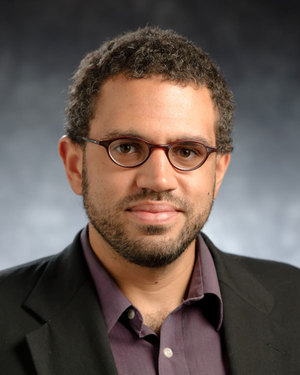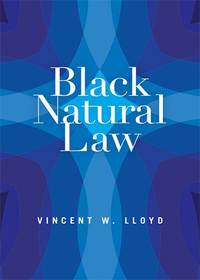
- Villanova University
- Associate Professor of Theology and Religious Studies
- Affiliation During NDIAS Fellowship: Syracuse University
- Residential Fellow (2012-2013)
- "Black Natural Law"
Vincent Lloyd is Associate Professor of Theology and Religious Studies at Villanova University, where he directs the Villanova Political Theology Project. He specializes in political theology and African American religious thought and his research focuses on questions about the intersection of religious and political ideas using interdisciplinary methods.
Professor Lloyd’s publications include five monographs, including Black Natural Law (2016), written during his NDIAS fellowship, as well as five edited books, including Race and Secularism in America (co-edited with Jonathon Kahn, 2016), begun during his NDIAS fellowship. Lloyd co-edits the journal Political Theology and edits the book series Reflection and Theory in the Study of Religion, published by Oxford University Press. He is the recipient of several grants from institutions that include the American Academy of Religion, the Louisville Institute, and the American Council of Learned Societies. He has also served as a Visiting Scholar at the James Weldon Johnson Institute for the Study of Race and Difference at Emory University (2010-2011) and as a Kingdon Fellow at the University of Wisconsin's Institute for Research in the Humanities (2015-2016).
Publications
-
Black Natural Law
Oxford University Press, 2016

Black Natural Law offers a new way of understanding the African American political tradition. Iconoclastically attacking left (including James Baldwin and Audre Lorde), right (including Clarence Thomas and Ben Carson), and center (Barack Obama), Vincent William Lloyd charges that many Black leaders today embrace secular, white modes of political engagement, abandoning the deep connections between religious, philosophical, and political ideas that once animated Black politics. By telling the stories of Frederick Douglass, Anna Julia Cooper, W. E. B. Du Bois, and Martin Luther King, Jr., Lloyd shows how appeals to a higher law, or God’s law, have long fueled Black political engagement. Such appeals do not seek to implement divine directives on earth; rather, they pose a challenge to the wisdom of the world, and they mobilize communities for collective action. Black natural law is deeply democratic: while charismatic leaders may provide the occasion for reflection and mobilization, all are capable of discerning the higher law using our human capacities for reason and emotion.
At a time when continuing racial injustice poses a deep moral challenge, the most powerful intellectual resources in the struggle for justice have been abandoned. Black Natural Law recovers a rich tradition, and it examines just how this tradition was forgotten. A Black intellectual class emerged that was disconnected from social movement organizing and beholden to white interests. Appeals to higher law became politically impotent: overly rational or overly sentimental. Recovering the Black natural law tradition provides a powerful resource for confronting police violence, mass incarceration, and today’s gross racial inequities.
Black Natural Law will change the way we understand natural law, a topic central to the Western ethical and political tradition. While drawing particularly on African American resources, Black Natural Law speaks to all who seek politics animated by justice.